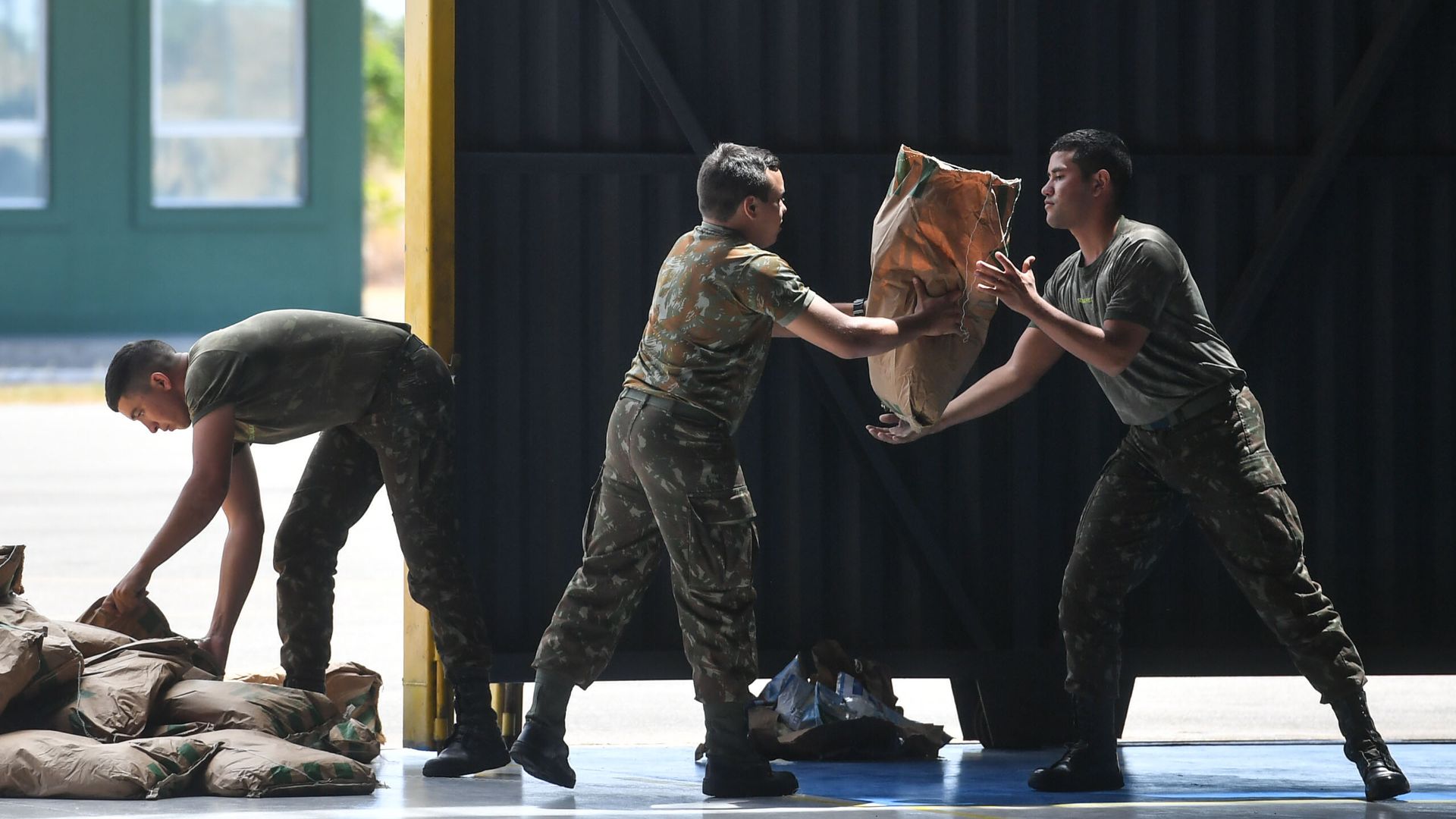Feb 22, 2019 - World
Expert VoicesVenezuela’s border showdown is reaching a breaking point
Add Axios as your preferred source to
see more of our stories on Google.

Brazilian soldiers organize sacks of powdered milk that are part of the humanitarian aid for Venezuela, at Ala 7 air base in Boa Vista, Brazil, on Feb. 22, 2019. Photo: Nelson Almeida/AFP via Getty Images
